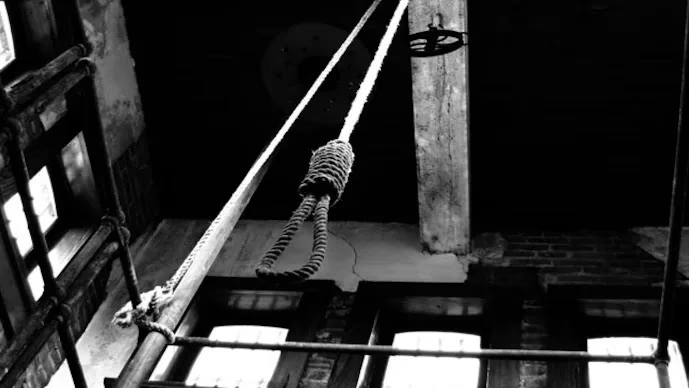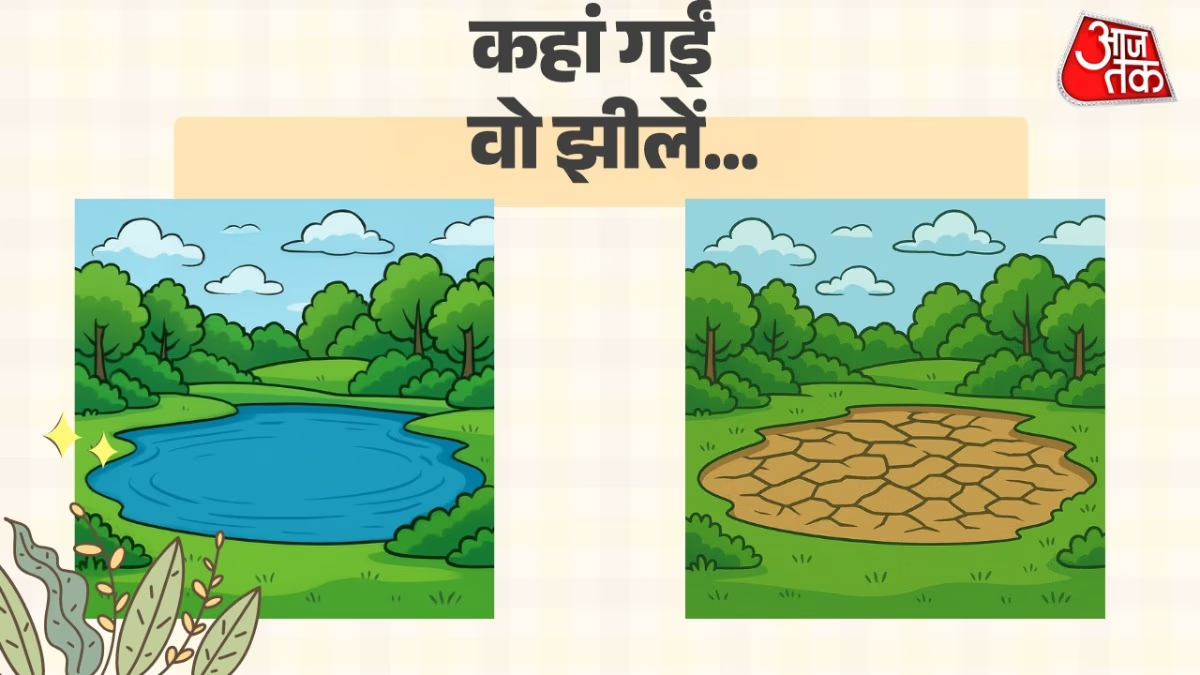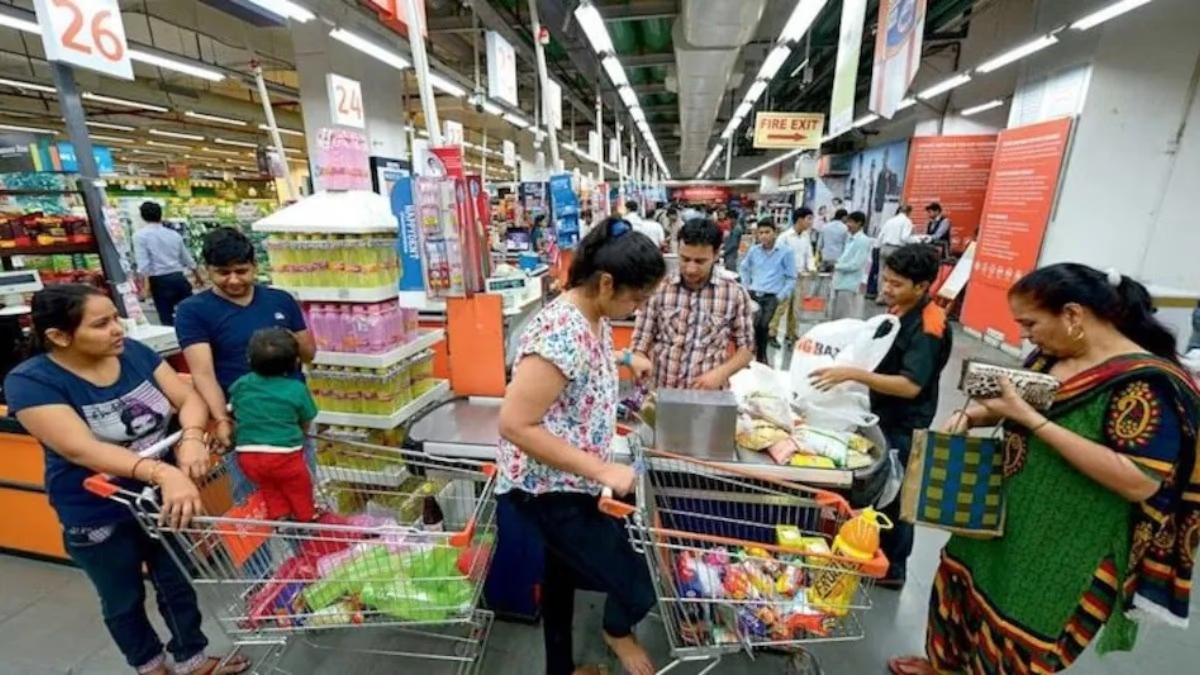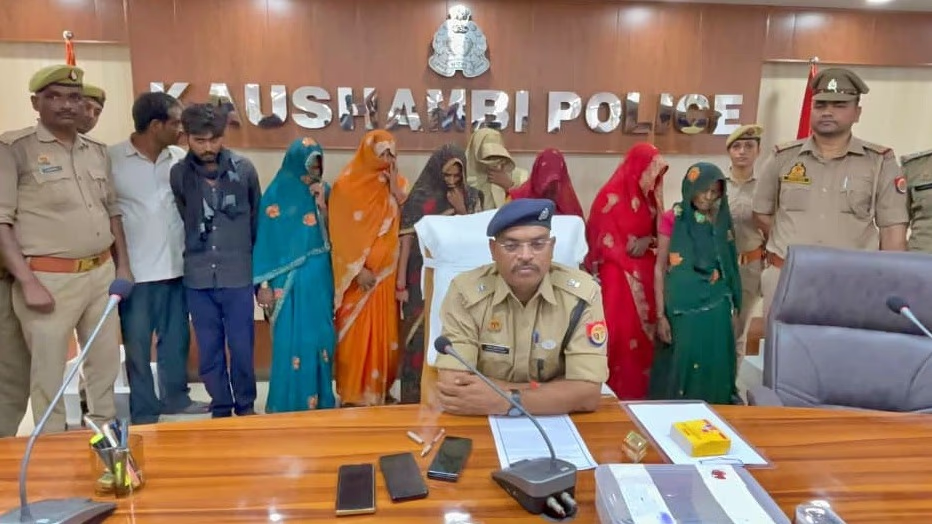The rape and subsequent murder of a trainee doctor at Kolkata's RG Kar Hospital has remained a hot topic. The main accused, Sanjay Roy, has been arrested. There is a demand for him to be hanged. In the meantime, West Bengal Chief Minister Mamata Banerjee has passed a new bill to impose the death penalty for rape cases. The bill includes provisions for the death penalty for rapists.
The death penalty for rape convicts is already in the law. Every year, several convicts in rape cases are sentenced to death. But in the past 20 years, only five convicts have been hanged for rape and murder.
Is Death Penalty the Only Option?
There is opposition to giving death sentences to convicts. The Supreme Court has ruled in several cases that the death penalty should be given only in the 'rarest of rare' cases. In a 1980 case of Bachan Singh vs. Punjab Government, the Supreme Court ruled that life imprisonment should be the rule, and death punishment an exception.
In the 1983 case of Machhi Singh vs. Punjab Government, the Supreme Court set down five circumstances under which convicts could be given the death penalty: The method of murder, the motive for murder, the social abhorrence of the crime, the magnitude of the crime, and the personality of the victim. The court said it must be clear why life imprisonment was insufficient and why the death penalty was the only option.
In May 2009, in the case of Santosh Kumar Satishbhushan Bariyar vs. Maharashtra Government, the Supreme Court further explained the 'rarest of rare' doctrine. It stated that a convict should not be given the death penalty unless life imprisonment is not a viable option. The court said that two points must be considered: whether the case is 'rarest of rare' and if life imprisonment is a viable alternative.
Similarly, in August 2019, a three-judge bench of the Supreme Court upheld the death penalty for a convict with a 2:1 majority. However, Justice Sanjiv Khanna disagreed and said that the Supreme Court has previously ruled that the death penalty should only be given when life imprisonment is not an option. He stressed that the convict had admitted his crime without coercion, and thus, life imprisonment would be appropriate. The convict had been sentenced to death for raping and murdering a minor girl and killing her minor brother.
Is it Possible to Sentence to Death in 10 Days?
Laws have been amended from time to time to prevent sexual crimes against women and children. After the 2012 Nirbhaya case, significant changes were made in the law, including the provision of the death penalty in rape cases.
The new bill by Mamata Banerjee's government in West Bengal has provisions for speedy trials in rape and murder cases. It is being said that rapists will be sentenced to death within 10 days, but this is not mentioned in the bill. These cases will be heard in fast-track courts.
Statistics show that most cases where death sentences are given annually are related to rape and murder. According to Project 39 by the National Law University of Delhi, in 2023, the session courts awarded death sentences in 120 cases. Out of these, 64 cases, or 53%, were related to rape and murder.
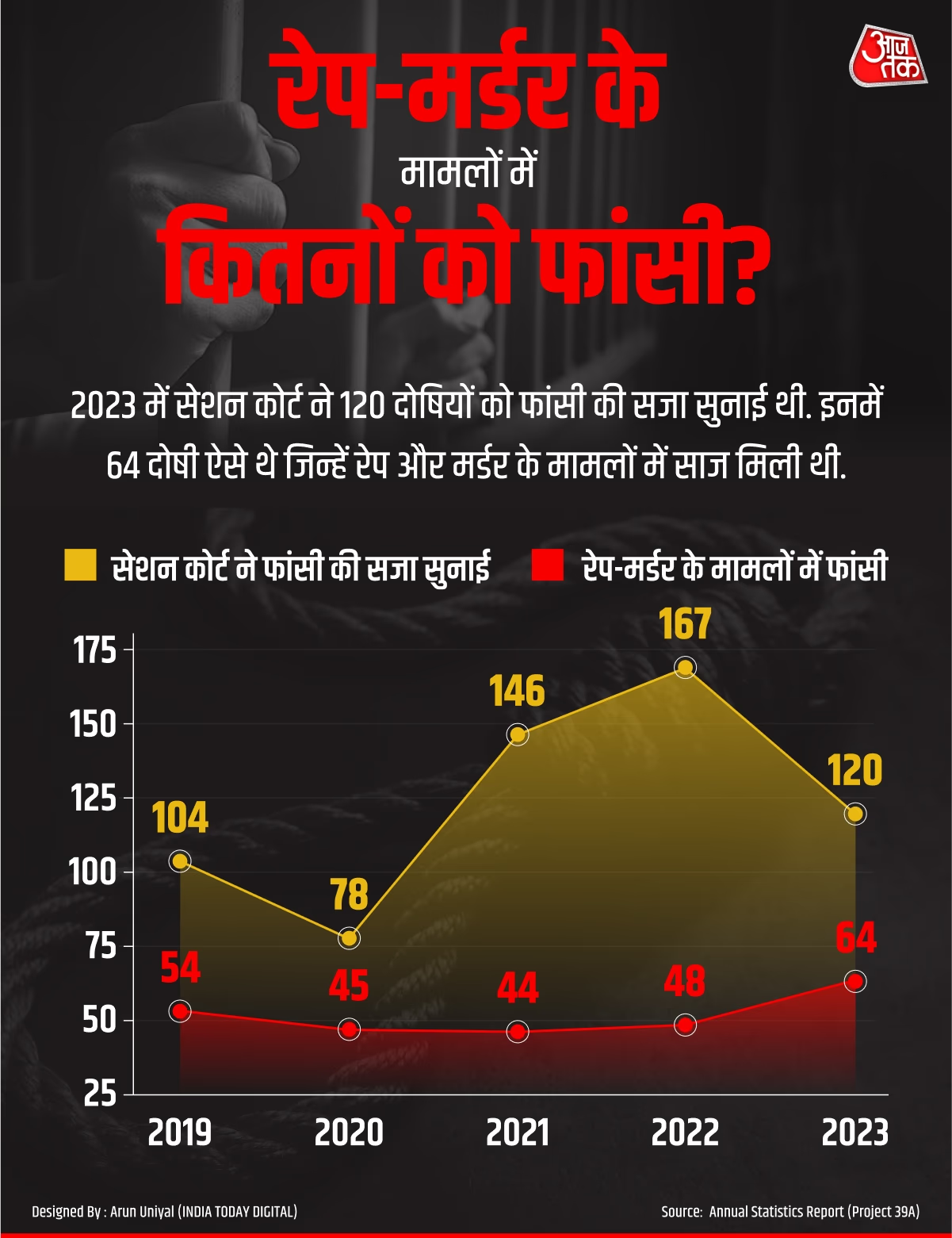
Source: aajtak
Read More:
However, if the session court sentences a convict to death, the High Court's approval is necessary. Under Section 22(2) of the Indian Penal Code, if the session court awards the death penalty, it must go to the High Court. Only after the High Court's approval can the death sentence be confirmed.
According to Project 39, in 2023, the High Courts received 80 cases of death sentences. Out of these, only one case had the death sentence upheld by the High Court. In 36 cases, the death penalty was commuted to life imprisonment, and in 36 other cases, the convicts were acquitted. The Karnataka High Court upheld the death sentence of Balluri Thippayya, who was convicted of murder.
Meanwhile, the Supreme Court completed hearings in 11 cases of convicts on death row. In 3 cases, the court commuted the death sentences. In 5 cases involving 6 convicts, the Supreme Court acquitted them. While in 2 cases, the Supreme Court sent the matters back to the High Court for reconsideration.
As of December 2023, according to Project 39, there were 561 inmates with death sentences in jails across the country, the highest number in 19 years. The previous high was 563 in 2004.
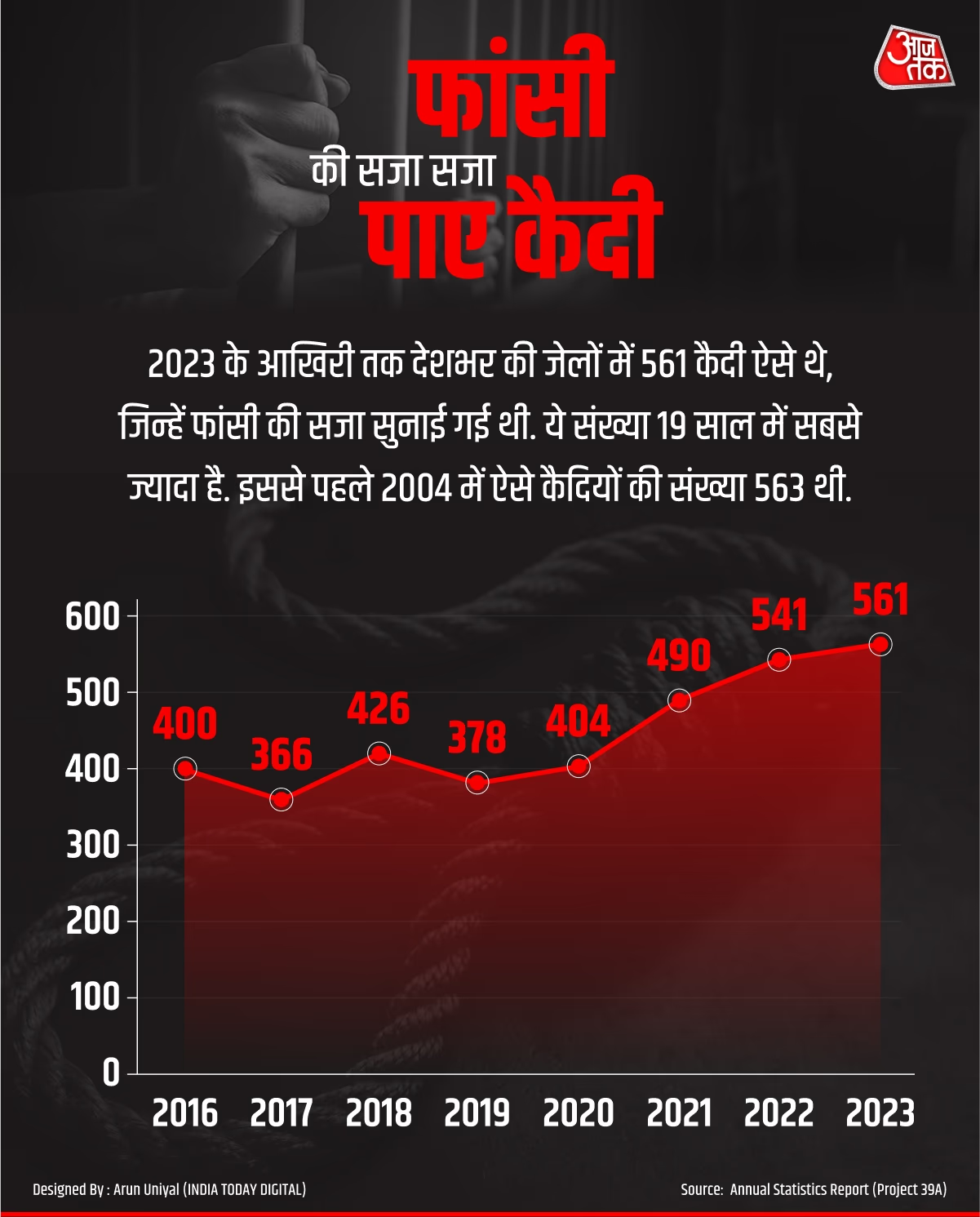
Source: aajtak
Read More:
How Many Rapists Have Been Hanged So Far?
Over the past 20 years, only five convicts have been hanged for rape and murder. On 14 August 2004, Dhananjoy Chatterjee was hanged for the rape and murder of a 14-year-old girl in 1990.
On 20 March 2020, four convicts of the Nirbhaya case were hanged. The incident, which took place on 16 December 2012, involved the brutal rape of a young woman in a moving bus in Delhi. The victim eventually died from her injuries. The case had six convicts, one of whom was a minor who served three years in a correctional facility. Another suspect committed suicide. The remaining four convicts - Mukesh Singh, Vinay Sharma, Akshay Thakur, and Pawan Gupta exhausted every legal recourse to avoid execution but were eventually hanged in March 2020 at Tihar Jail.
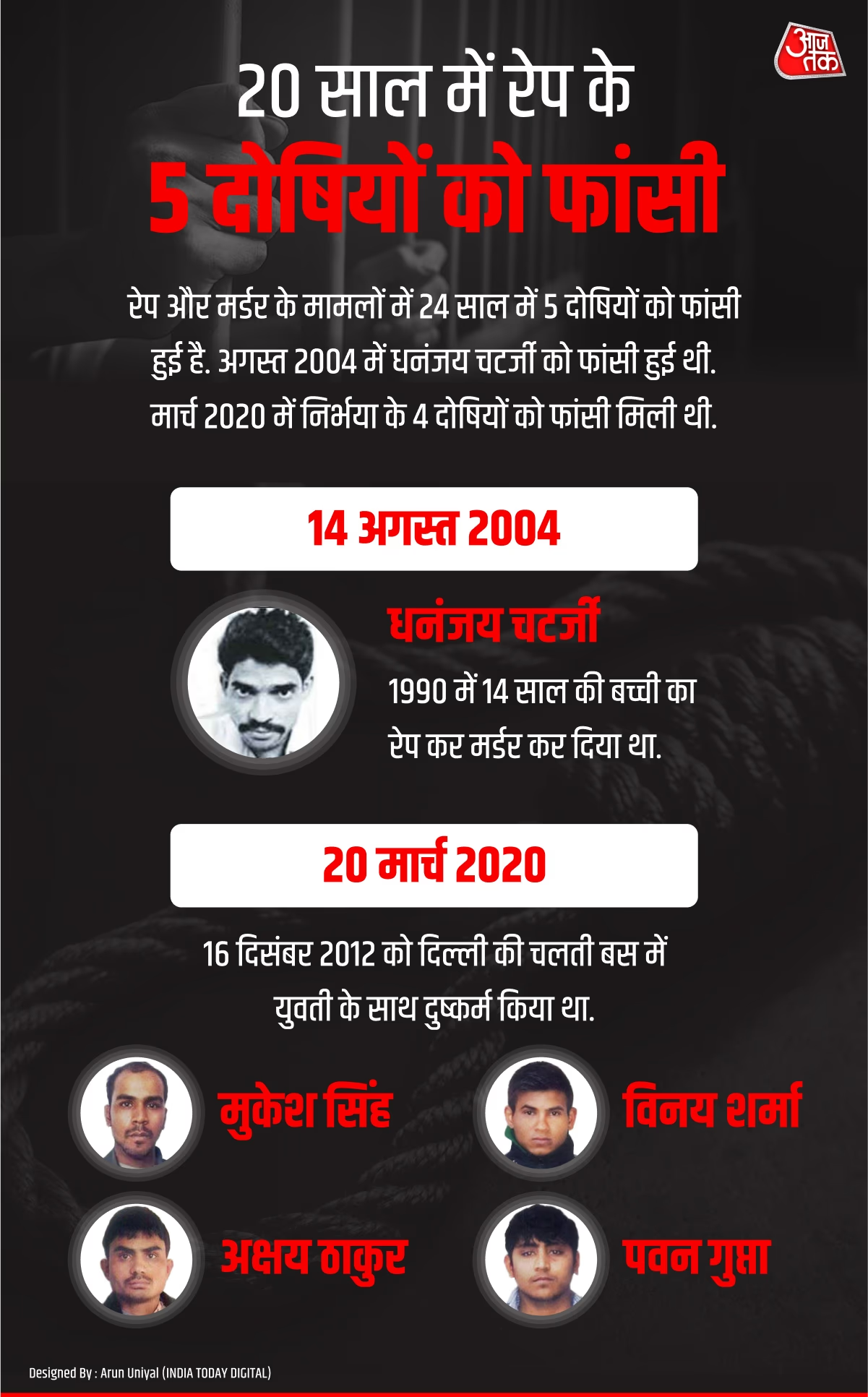
Source: aajtak
What Causes Delays After the Sentence?
Statistics show that while death sentences are often handed out to convicts, they are rarely carried out. Lower courts are believed to pass death sentences hastily influenced by local sentiments. However, higher courts usually overturn these sentences.
In May 2022, in the case of Manoj Kumar vs. Madhya Pradesh Government, the Supreme Court expressed concern over death sentences handed out by trial courts. The court stated that all evidence related to the convict should be thoroughly considered before issuing a death sentence. Furthermore, all relevant information and evidence, including the convict's age, family background, educational level, income, and psychological state, must be presented to the trial court by the government.
In April last year, the Supreme Court further ruled that if the prosecution demands the death penalty, they must present the convict's background information to the trial court.
Nevertheless, even if a trial court sentences a convict to death, the verdict must be confirmed by the High Court.
If the High Court upholds the death sentence, the convict still has the option to appeal to the Supreme Court. After the Supreme Court's decision, there are still review and curative petitions available. Finally, the convict can submit a mercy petition to the President of India.
Even if the mercy petition is denied, the convict can sometimes approach the Supreme Court again. For instance, in the 1993 Delhi blast case, Devinder Pal Singh Bhullar's mercy petition was rejected, but the Supreme Court later commuted his death sentence to life imprisonment due to an eight-year delay in the rejection of his mercy petition.
Read More:
When is the Death Penalty Given in Rape Cases?
Under Section 65 of the Indian Penal Code (IPC), a person found guilty of raping a girl under 12 can be sentenced to 20 years to life imprisonment, which will last for the convict's entire life. The death penalty is also an option in such cases. Fines can also be imposed.
In cases of gang rape, the convicts can be sentenced to 20 years to life in prison and fined. Under Section 70(2) of the IPC, if a minor is gang-raped, the minimum sentence is life imprisonment, and the convict can also be sentenced to death. Fines can also be imposed in these cases.
Under Section 66, if a woman dies or is left in a coma because of a rape, the convict can be sentenced to at least 20 years in prison. This can be extended to life imprisonment or the death penalty.
Additionally, the POCSO Act was implemented in 2012 to curb sexual crimes against minors. Initially, it did not include the death penalty, but it was amended in 2019 to include it. Under this act, a life sentence means that the convict must remain in prison for their entire life, without the possibility of release.
